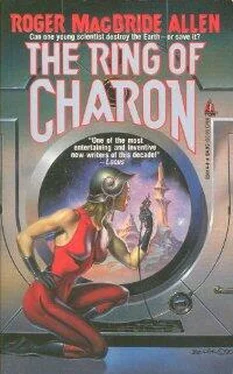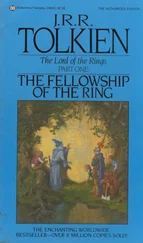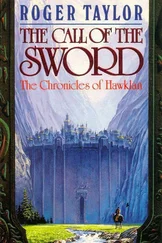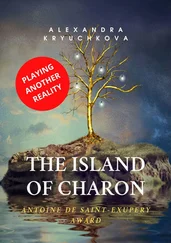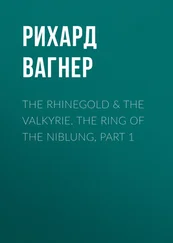Roger Allen - The Ring of Charon
Здесь есть возможность читать онлайн «Roger Allen - The Ring of Charon» весь текст электронной книги совершенно бесплатно (целиком полную версию без сокращений). В некоторых случаях можно слушать аудио, скачать через торрент в формате fb2 и присутствует краткое содержание. Год выпуска: 1990, ISBN: 1990, Издательство: Tor Books, Жанр: Фантастика и фэнтези, на английском языке. Описание произведения, (предисловие) а так же отзывы посетителей доступны на портале библиотеки ЛибКат.
- Название:The Ring of Charon
- Автор:
- Издательство:Tor Books
- Жанр:
- Год:1990
- ISBN:0-812-53014-4
- Рейтинг книги:5 / 5. Голосов: 1
-
Избранное:Добавить в избранное
- Отзывы:
-
Ваша оценка:
- 100
- 1
- 2
- 3
- 4
- 5
The Ring of Charon: краткое содержание, описание и аннотация
Предлагаем к чтению аннотацию, описание, краткое содержание или предисловие (зависит от того, что написал сам автор книги «The Ring of Charon»). Если вы не нашли необходимую информацию о книге — напишите в комментариях, мы постараемся отыскать её.
The Ring of Charon — читать онлайн бесплатно полную книгу (весь текст) целиком
Ниже представлен текст книги, разбитый по страницам. Система сохранения места последней прочитанной страницы, позволяет с удобством читать онлайн бесплатно книгу «The Ring of Charon», без необходимости каждый раз заново искать на чём Вы остановились. Поставьте закладку, и сможете в любой момент перейти на страницу, на которой закончили чтение.
Интервал:
Закладка:
She stepped over to a large, ceiling-to-floor window just past the entrance to the library. The city was quiet, and dark, and the dome was opacified, locking in as much of the day’s warmth as possible to carry the city through the night. Marcia was disappointed. She had wanted to see the stars.
The stars. Good God, that was where her husband was now. Gerald. Gerald, where are you ? They had thought themselves tragically sundered with a paltry few hundred million kilometers between them. Now the distance between them was literally unmeasurable.
What had that first signal said? She turned and walked back to the library. Marcia returned to her desk, shuffled through her papers, and found the first preliminary message from Earth. She studied it again, read the sad words. “Distance from Earth unknown… range estimated to be at a minimum of several hundred light years, with no upper limit.” The Earth could be on the other side of the Milky Way—or in another galaxy altogether. She read on. “Perpetrators of Earth-theft unknown. Purpose of Earth-theft unknown…”
She dropped the paper and sighed. This Wolf Bernhardt was not an optimistic reporter, to put it mildly. Well, at least he got the facts down in a clear fashion, and that was what counted.
Earth had survived. The people of Earth were alive— or at least most of them were. That was the real message, and the happiest possible report that could have been sent. They should all be grateful that Earth survived intact.
But had Gerald survived? Marcia closed her eyes and crumpled up the message slip. It seemed likely, but she had no way of knowing. Nor was there anything she could do about it. It was all but certain that she would never see him again, never hear his voice or touch his hand. Perhaps, one day, there would be a message—but even if the Saint Anthony survived long enough to do such service, all the billions of people on Earth and in the Solar System would be struggling to send word through the probe. It would be a long line to wait in. Besides, the probe might be destroyed at any moment by God only knew what. It might be a long time—or forever—before she could get or receive word.
Suddenly, a great feeling of peace settled over her. Gerald was all right. She found herself quite abruptly believing that, knowing it. Strange as it seemed, Earth was in very good hands, well cared for. Whoever had taken the planet had placed it in a carefully perfect orbit, reproduced its original tides and solar radiation to within three decimal places.
Marcia rubbed her tired eyes. Marcia had yet to rest since the first news from Earth had flashed across the Solar System. The first wave of hopeful excitement had faded long ago, to be replaced by utter bafflement. The new data from Earth merely confused the situation even more.
There was a noise from the other side of the room. Marcia looked up to see Sondra, rolling over in her sleep, caught inside a dream.
The screen dimmed, flared, cleared. Somehow Sondra was watching the display and in it at the same time, watching a readout of her own mind, watching the results of watching the readout, which were caused by the readout.
Feedback. Her mind echoed, shifted places, split into two. Now half of her was Charonian, a scorpion robot. But no, a real scorpion, grown huge, its stinging tail swiveling toward her as the monster stepped through the fun-house mirror that was all that remained of the video screen—
Sondra groaned, raised her hands, rolled over—and fell off of the cot. Hitting the floor woke her, but just barely. She lay there, all but inert, for a long moment, before summoning the energy to move.
She looked up to see Marcia trying to hide a smile.
“Good morning, or evening, or whatever the hell it is,” Sondra said in a growly voice.
“Dead of night, I think,” Marcia said.
Sondra got up carefully, trying to unwrap the sheet that had tangled itself around her legs, feeling decidedly foolish. “Just like the bad old days in grad school,” she said, mostly for the sake of something to say. “Pump the brain full of facts, stumble someplace to sleep, and then semi-reawaken to write the term paper. Should I go somewhere else to work?”
Marcia smiled. “No need. I’m stuck myself at the moment. You can’t disturb thoughts that aren’t happening. What have you got so far?”
Sondra smiled. Nice of Marcia to ask. But then Marcia was nice. Much nicer than Sondra would ever be—or would ever want to be. She went over to her own desk on the far side of the room, sat down at her terminal and picked up her notes. “Some extremely weird stuff,” she said. “The exobiology labs came up with something big while you were out. Inside every one of the creatures they’ve examined, they’ve found not only Earth-type DNA, but at least three other incompatible, nonterres-trial genetic-coding systems. Which means the Charoni-ans’ ancestors—or at least the ancestors of whoever engineered them—visited Earth and stole samples of DNA, and did the same on at least three other life-bearing worlds.” Sondra looked up at Marcia. “That scary enough for you?”
“Oh, yes,” Marcia said, clearly too stunned by the words to say anything more.
Sondra couldn’t blame her for being unsettled. It was no happy thought to realize the Charonians had used Earth life as a genetic spare-parts bin. Knowing they were in some way related to Earth life somehow only made them more… alien . “It confirms something else, too,” Sondra said. “The living Charonian creatures are clearly every bit as artificial as their robots. As if the designers of the living creatures and mechanical devices didn’t make any distinction between life-form and machine, and combined some elements of both types into everything they made. Which might explain why the scorpion robots look like scorpions. They’re patterned after some form of terrestrial arthropod.” She tossed her notes down. “That’s the big news here. What’s new from the field?” she asked.
“We’re getting a lot better at reading the Charonians’ minds,” Marcia said, leaning back in her chair and propping her feet up. “I’ve spent the day pulling together a lot of data on the thought processes of the Charonians. The datataps are collecting more information than we’ll ever use. And we’re getting terrific stuff from the Lunar Wheel taps.
“Unfortunately, Charonian minds make for pretty dull reading,” Marcia said dryly. “It’s almost all concrete imagery, direct visualization with almost no capacity for abstract thought, or reasoning by deduction or induction. Their thoughts are highly repetitive. A lot of what passes for thought seems to be ‘playback’ of another creature’s experiences.”
Sondra frowned. “How does that work?”
“Say a scorpion robot comes across a rock in its path,” Marcia said. “It first calls up the memory of a previous encounter with a rock, to see how it handled the problem before. It then adapts the old thought-image to the existing circumstance, and works out the best route around the rock it currently faces. Then it broadcasts the results, and whoever runs into the rock next already knows how to deal with it. They can run through the whole process very quickly. The whole cycle of obstacle encounter, image call-up, image modification, and then reaction only takes milliseconds. The key is that all the Charonians are constantly broadcasting their own experiences and picking up transmissions from all the other Charonians in the vicinity. One creature can send out a query, and then receive a solution to its problem. If they’re working it right, they ought to be able to store and transfer memories from one generation to the next.
Читать дальшеИнтервал:
Закладка:
Похожие книги на «The Ring of Charon»
Представляем Вашему вниманию похожие книги на «The Ring of Charon» списком для выбора. Мы отобрали схожую по названию и смыслу литературу в надежде предоставить читателям больше вариантов отыскать новые, интересные, ещё непрочитанные произведения.
Обсуждение, отзывы о книге «The Ring of Charon» и просто собственные мнения читателей. Оставьте ваши комментарии, напишите, что Вы думаете о произведении, его смысле или главных героях. Укажите что конкретно понравилось, а что нет, и почему Вы так считаете.
